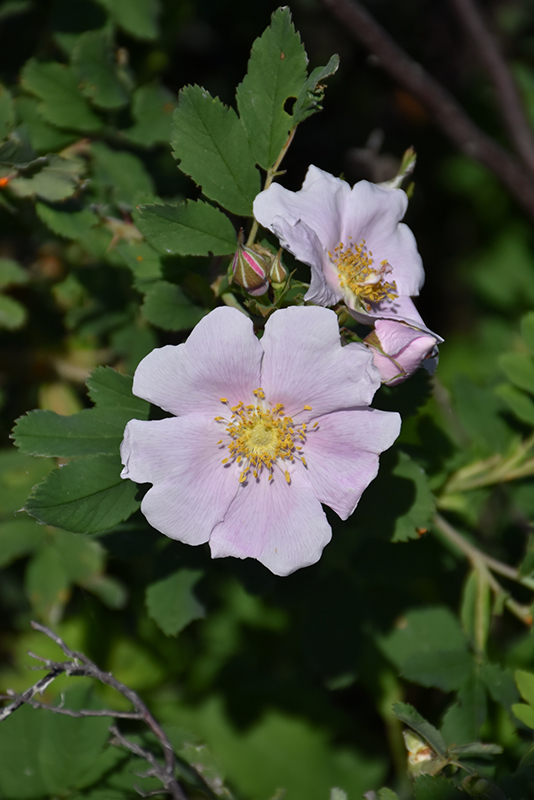PLANT FINDER
Height: 8 feet
Spread: 10 feet
Sunlight:
![]()
Hardiness Zone: 2a
Other Names: Prickly Rose, Bristly Rose
Description:
A cold hardy native rose variety that occurs in average to acidic, rocky soils; features single pink flowers with yellow centers that bloom in mid-spring only; hips appear in late summer adding fall interest; excellent for rock gardens or hedging
Ornamental Features
Prickly Wild Rose features showy lightly-scented pink flowers with yellow eyes at the ends of the branches from mid to late spring, which emerge from distinctive red flower buds. The flowers are excellent for cutting. It has dark green deciduous foliage. The serrated oval compound leaves turn yellow in fall. The fruits are showy scarlet hips displayed in late summer.
Landscape Attributes
Prickly Wild Rose is a multi-stemmed deciduous shrub with an upright spreading habit of growth. Its average texture blends into the landscape, but can be balanced by one or two finer or coarser trees or shrubs for an effective composition.
This shrub will require occasional maintenance and upkeep, and is best pruned in late winter once the threat of extreme cold has passed. It is a good choice for attracting birds, bees and butterflies to your yard. Gardeners should be aware of the following characteristic(s) that may warrant special consideration;
- Disease
- Spiny
Prickly Wild Rose is recommended for the following landscape applications;
- Accent
- Mass Planting
- General Garden Use
Planting & Growing
Prickly Wild Rose will grow to be about 8 feet tall at maturity, with a spread of 10 feet. It tends to fill out right to the ground and therefore doesn't necessarily require facer plants in front, and is suitable for planting under power lines. It grows at a fast rate, and under ideal conditions can be expected to live for approximately 30 years.
This shrub should only be grown in full sunlight. It does best in average to evenly moist conditions, but will not tolerate standing water. It is not particular as to soil type or pH. It is somewhat tolerant of urban pollution. This species is native to parts of North America.


